The Nine Emperor Gods Festival in Penang
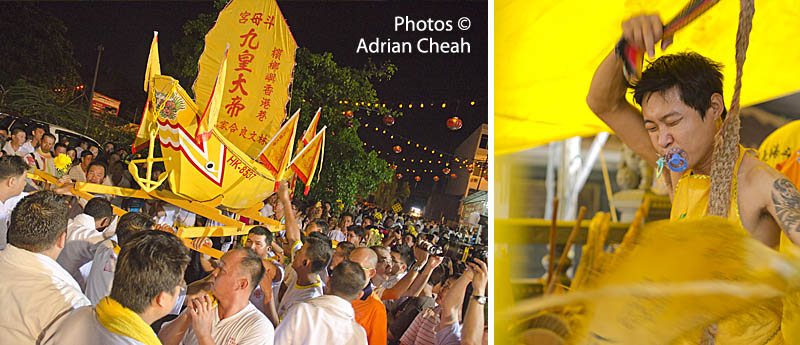
How far would you go to uphold your beliefs? Would you be willing to undergo a strict vegetarian diet for nine straight days, walk on fire barefooted or pierce a long spear through your cheeks? Or are you an armchair devotee who prefers to remain in your comfort zone and observe events from afar? Does the younger generation know what this festival is all about and how many would stop to find out more?
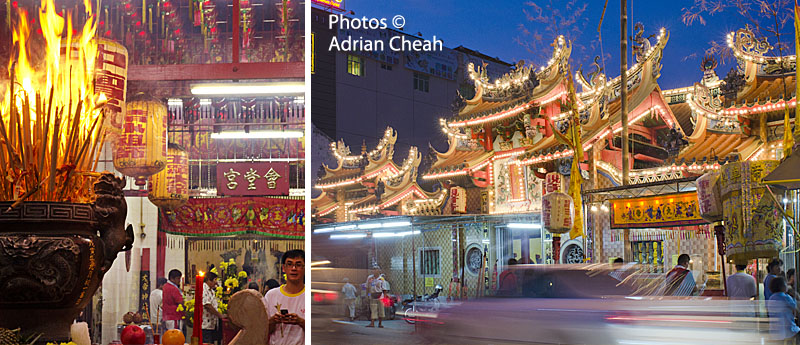

The Nine Emperor Gods Festival is a popular annual Taoist celebration held on a grand scale in Penang, especially in Butterworth. The worship of the Nine Emperor Gods is prevalent in the southern provinces of China, particularly Fujian from where many folks in Penang trace their ancestral roots. Festivities span from the first day to the ninth day of the ninth moon of the lunar calendar.
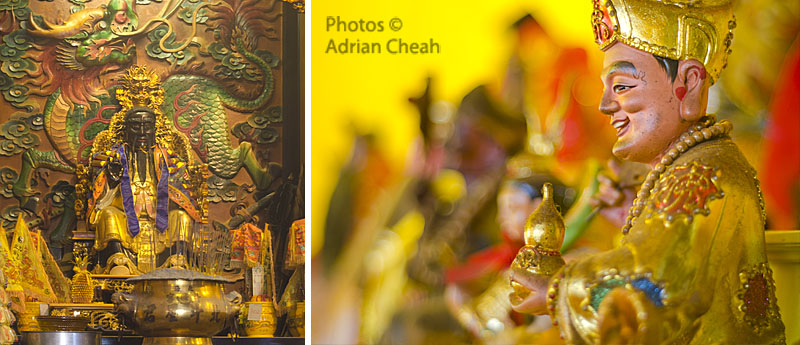

Popular folklore has it that the Nine Emperor Gods were actually sea pirates from the Ming dynasty who plotted to overthrow the emergent Qing dynasty. However, according to some historians, this deduction is inaccurate and considered derogatory to the teachings of Taoism. The festival ushers in the nine sons who are high-ranking Star Lords of Tou Mu, the Goddess of the North Star. It is believed that she presides over the movements of the planets and manages matters related to the lives and deaths of mortals.
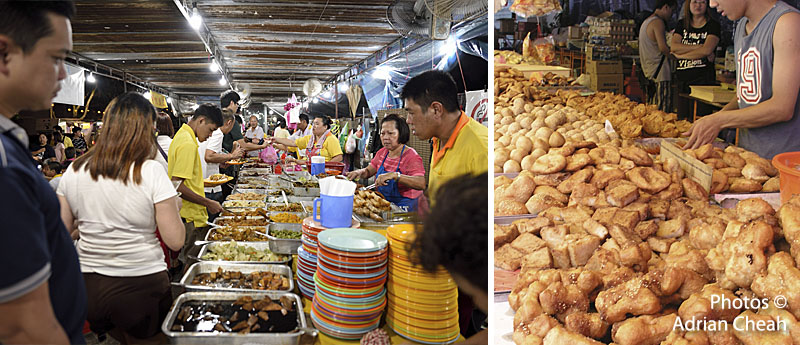
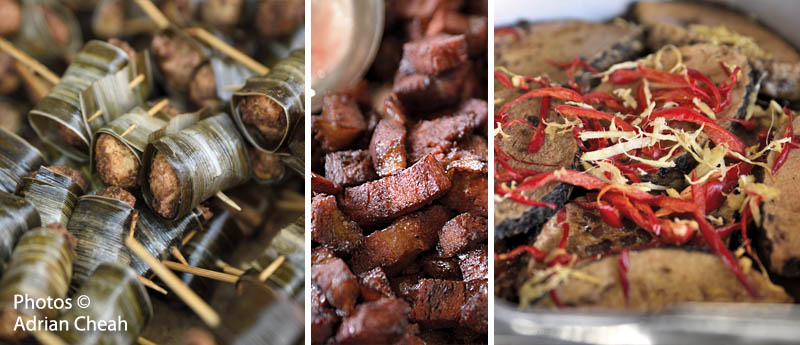


For nine days, each devotee observes a strict vegetarian diet to "cleanse" both body and soul. During this period, it is convenient and easy to find numerous stalls selling vegetarian food mushrooming all over Penang. They offer scrumptious and creative vegetarian cuisine, many resembling popular Chinese favourites (e.g., char siew, roast duck and lor bak). The level of creativity in creating the appearances, flavours and textures in these dishes is astounding. Most, if not all, of these stalls, would prominently display the colour yellow, indicating that they serve vegetarian food. This is the time to feast on all things vegetarian, although their appearance can often be deceiving. In any case, when it comes to feasting, Penangites are always ready, willing, and eager to support and indulge.


On the eve of the ninth moon, temples devoted to these deities hold a commemorative ceremony to invoke and welcome the Nine Emperors. Since the arrival of the gods is believed to be via waterways, the processions led by throngs of devotees dressed in white often commence at seafronts or river banks. They carry incense and candles, eagerly awaiting the arrival of the Star Lords before ushering them to their respective temples.


The Tow Boo Kong Temple, located on the northern end of Jalan Raja Uda in Butterworth, is one of the largest temples in Penang devoted to the Nine Emperor Gods. Originally set up as just an attap-shed shrine in the early 1970s, the temple was rebuilt to its current scale and grandeur in 2000. The majestic archway was completed in 2009.
Throughout the entire nine days of the festival, the temple authorities organise a host of activities. A carnival-like atmosphere pervades the grounds with many taking the opportunity to visit this grand and majestic temple, ornate with intricate sculptures and wall coverings. Within the opulent main shrine hall house images of the deities.




Let us take a closer look at the activities held at Tow Boo Kong Temple. On the eve of the festival, a 2-km procession commences from Pantai Bersih Beach, is held to usher in the gods.
On the first and third day, birthday celebrations and prayers are offered to the deities Nan Dou and Bei Dou, as well as the nine gods. Other days feature unique events such as a medication oil cooking ceremony, a spear skewering ritual (not recommended for the faint-hearted), followed by a colourful and vibrant float procession on one of the evenings.
On the seventh day, a fire walking ceremony takes place. This act by devotees truly defies logical explanations. The eighth day would see an interesting "Fort Crossing" ceremony.
The final day of the festival which draws scores of devotees marks the grand birthday celebration of the deity Dou Mu. The celebrations come to an end with a final send-off to the nine Emperor Gods at Pantai Bersih Beach.
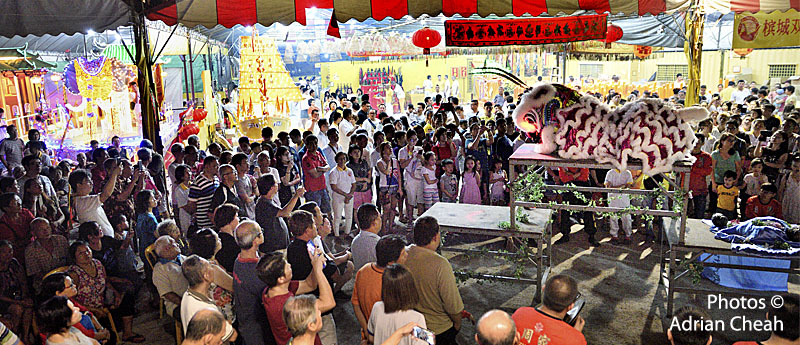

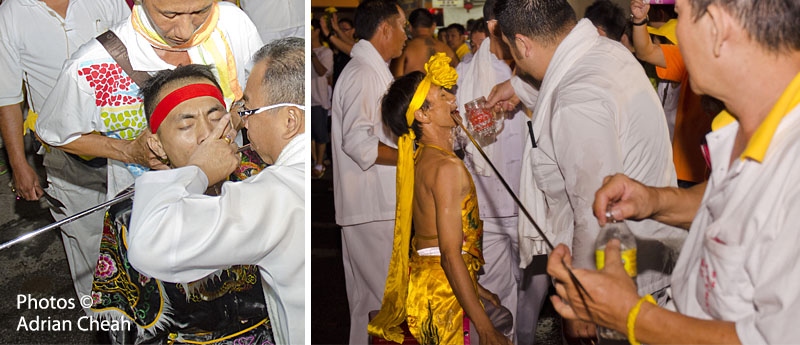

With the current availability of technology and science, information is easily obtained, oftentimes leading to questions about traditional practices and beliefs. Having said that, the long-lasting annual observance of the Nine Emperor Gods festival is nevertheless celebrated on epic proportions in Penang at opulent temples by hundreds and thousands of devotees. If you are a tourist in Penang, you might stop to ponder, "why?" To which we in Penang would reply, "why not?"


Such festivals are some of the binding forces that bring societies closer together to foster stronger ties and unity. They are undeniably the colourful thread that is woven in the beautiful social tapestry that makes Penang truly unique.
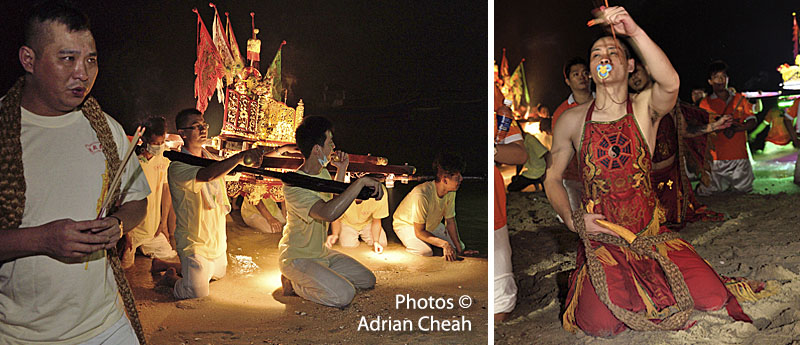
---------------------------------------------------------
For more information on the temple activities, contact Tow Boo Kong Temple, Butterworth at +604 331 8717 or visit www.towbookong.org.my
---------------------------------------------------------
Written and photographed by Adrian Cheah
© All rights reserved
Updated 14 September 2021